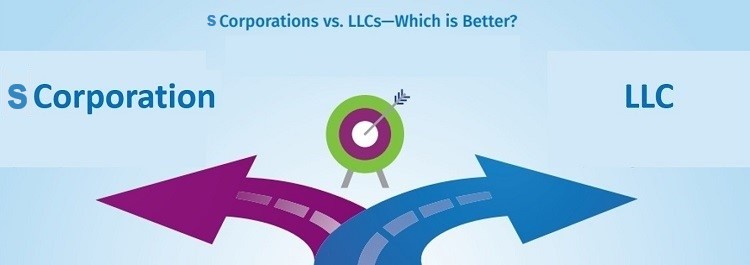
If you are a young startup business, you may be thinking about how to structure your company. Like many business owners, your head may be filled with ideas, as you compare sole proprietorship, S Corp, C Corp, LLC entity formation West Hollywood.
Which legal entity you choose can have widespread ramifications for your business. This includes liability, taxation, financing, growth, operational policies, and shareholders.
Now, let’s take a look at two of the most popular formations, LLC and S Corp and see how these differ and which ones suitable for your business.
What’s An S Corp?
S Corp, also known as S Corporation or S subchapter is a business type as determined by the United States Internal Revenue System (IRS).
There are certain criteria for an S Corp, which every business must satisfy to retain this is of classification. Let’s see what are these.
- Must have 100 shareholders or less
- Must have no more than one class of stock
- Must not have a shareholder that is a nonresident alien
S Corp status allows a business to incorporate while being taxed like a more informal partnership.
Schedule A Consultation Today!
What’s An LLC?
LLC is another company formation in West Hollywood that stands for Limited Liability Company. An LLC is considered a hybrid legal entity that has some characteristics of a corporation as well as those of a business partnership or sole proprietorship.
Limited Liability companies are subject to state statutes. So, the subtleties of LLC regulations may vary from one state to another.
The main benefit of an LLC is, as the name implies, the liability of the owners is restricted when it comes to the business’s debts and liabilities.
S Corp Vs LLC: Tax Benefits
For tax purposes, the IRS classifies businesses as a sole proprietorship, partnerships, C corporations or S corporations. There is no LLC tax classification and so, LLCs are taxed as though they are another business type.
The IRS automatically taxes single-member LLCs as sole proprietorships and multi-member LLCs as partnerships.
But an LLC can also choose to be taxed as a C corporation r as an S corporation.
What’s the difference between LLC taxed as S corp and sole proprietorship LLC taxes?
For many small businesses, the actual difference is in the way business owners pay Medicare and Social Security taxes, known as self-employment taxes.
Some LLC owners can save money on these taxes by choosing S corporation taxation.
 |

Cease Struggles With Entity Formation |
If a Single Member LLC is Taxed as a Sole Proprietorship
The LLC member reports business income and expenses on his or her personal income tax return and pays personal income tax on company profits.
The member is considered self-employed and so is responsible for paying Social Security and Medicare taxes on those profits.
If a Single Member LLC is Taxed as an S Corporation
The member can be considered as an employee of the business. An owner-employee must be paid a reasonable salary.
The LLC entity formation West Hollywood will report the salary as a business expense, and the owner will report both the salary and the remaining business profit on his or her personal tax return.
But unlike the sole proprietor LLC owner who must pay Medicare and Social Security taxes on all profits, the S corporation and its owner will pay the taxes on the owner’s salary. The remaining profits are not subject to taxes.
Which Structure Is Right For Your Business?
So, after reading through, do you have a better picture of whether an LLC or an S Corp is best for your startup business?
If you’re still on the fence, here are some questions to ask:
- How much flexibility do you need for your business? If maximum flexibility is your goal, an LLC may be better for you.
- How large and complex is your business? If your business is already sizeable, you may want to go with an S corp.
- What’s your vision for your business? You may be small and simple now, but if you are seeking large amounts of outside financing or intend to grow, an S corp may be a good option.
- What do state laws say regarding each company formation West Hollywood? This might be a deciding factor in choosing a structure.
Some businesses may be tempted to go the LLC route out of convenience, fearing the manpower and the paperwork that’s required to form and maintain an S corp is beyond them.
However, if your young business isn’t staffed yet, or if you are unsure of how to go about providing all the documentation you need for your business.
So, LLC Or S Corp?
If you’ve already formed the LLC but are unhappy with the tax consequences headed your way, you can change the tax status.
In general, you can elect LLC S corp status at any time during the tax year prior to the year you wish the election to take effect from.
Ideally, business owners and entrepreneurs would set up new ventures up as an LLC to have legal protection for their personal assets.
Once the business grows, it’s a good idea to investigate filing as an S Corp for the financial benefits.
Also, new businesses have approximately 75 days to elect a different tax status.
Before deciding on S corporation vs LLC, be sure you carefully evaluate the various pros and cons and seek advice from an accountant.
Contact Us Today:
Locations:

